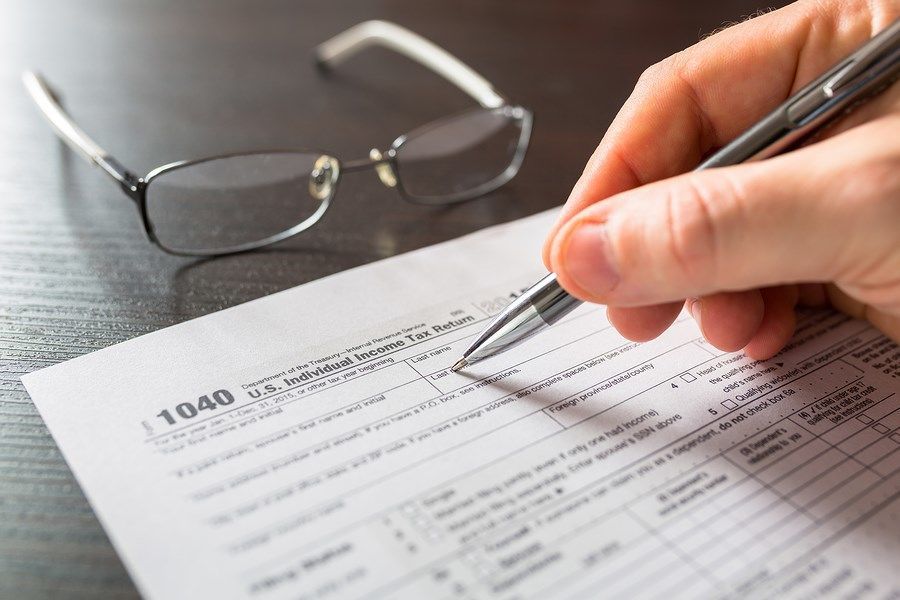If you're a sole proprietor, you are fully responsible for the complete control of your business, which includes being liable for all business debts and financial obligations. As a result, sole proprietors must keep excellent records to meet federal tax regulations.
Because sole proprietors do not have income taxes regularly withheld from their business income, they are required to pay what is known as quarterly estimated taxes.
The majority of business owners are extremely overwhelmed by quarterly taxes. However, when you play by the rules of the IRS and get sound advice from a seasoned tax professionals, you shouldn't have anything to worry about.
Continue reading to learn more about how to file taxes for a sole proprietor like a pro.
What Is a Sole Proprietor Tax?
If you are a sole proprietor and do not withhold taxes from your check, you are obligated to pay income taxes on the money.
It's very similar to Social Security taxes and Medicare deducted from employee paychecks. In the standard employee-employer relationship, the Social Security tax is split. However, when you are self-employed, you're left to foot the bill yourself.
Before determining whether you should pay self-employment tax, you should figure out your net loss or net profit from your business. Begin by subtracting all business expenses from the income. If you have a net profit, it should be transferred to the income section on the 1040 form. Likewise, net losses should be claimed on the form as well.
These estimated taxes are due every quarter and are based on your business's net income, dividends, interest, alimony, profits from investment sales, prizes, and awards. Simply put, you must pay taxes on any income you haven't paid taxes on.
One great rule of thumb is if you expect to owe at least $1,000 in taxes, it's best to file quarterly taxes.
Pay Quarterly Income Taxes and Avoid Quarterly Penalty Taxes
The IRS expects you to pay your federal income taxes throughout the year. Failing to pay quarterly taxes may result in your business being charged additional interest charges from Uncle Sam. At the same time, you could be subject to nonpayment penalties.
Even though paying your taxes quarterly may seem arduous, it will keep you in the IRS's good graces. When you keep your financial statements up to date and file your taxes quarterly, you avoid missing vital tax savings opportunities as well as quarterly penalty taxes.
How to File Quarterly Taxes for a Sole Proprietor
Although tax laws are subject to change regularly, it's still up to you to properly figure your estimated tax. This calculation includes your taxable income, adjusted gross income, deductions, taxes, and credits for the year.
Review the IRS Form 1040-ES vouchers, which are typically available online.
You can also find the vouchers at your local IRS office, from an accountant, or from your tax advisor. This form will assist you in calculating how much you should pay in quarterly taxes. The state forms can be found in person at your state's department of revenue or online.
However, the best way to understand how to file quarterly taxes for sole proprietor is to consult with an experienced tax professional. A tax professional will help accurately assess how much you owe, which may minimize your overall tax liabilities and avoid costly underpayment penalties.
When Are Quarterly Taxes for Sole Proprietor Due?
In almost all instances, these payments are based on the amount of money you made in the previous quarter. Quarterly tax payments are due on:
- April 15
- June 15
- September 15
- January 15.
However, there are several rules about how much you should pay and when you should pay on a quarterly basis.
In order to avoid underpayment penalties or nonpayment penalties, it's best to choose a tax accountant with tax law experience. Your tax accountant can guide you through the process, ensure all of the documentation is accurate, and even represent you in the event of an audit.
Protect Your Business with the Assistance of Dennehy CPA
The majority of sole proprietors shiver at the thought of paying and calculating federal as well as income taxes more than annually. After the money is safe and secure in their bank accounts, most business owners find it extremely difficult to fork it over to the government.
Regardless of how much discomfort it causes you, you don't have a choice in paying sole proprietor or self employed taxes. Learning how to file quarterly taxes for sole proprietor is arduous, tedious, and can be filled with pitfalls. Instead of falling victim to these undesirable outcomes, the best solution is to consult with the experienced tax accountants at Dennehy CPA.
Contact Dennehy CPA today for a consultation to get your business on track.





